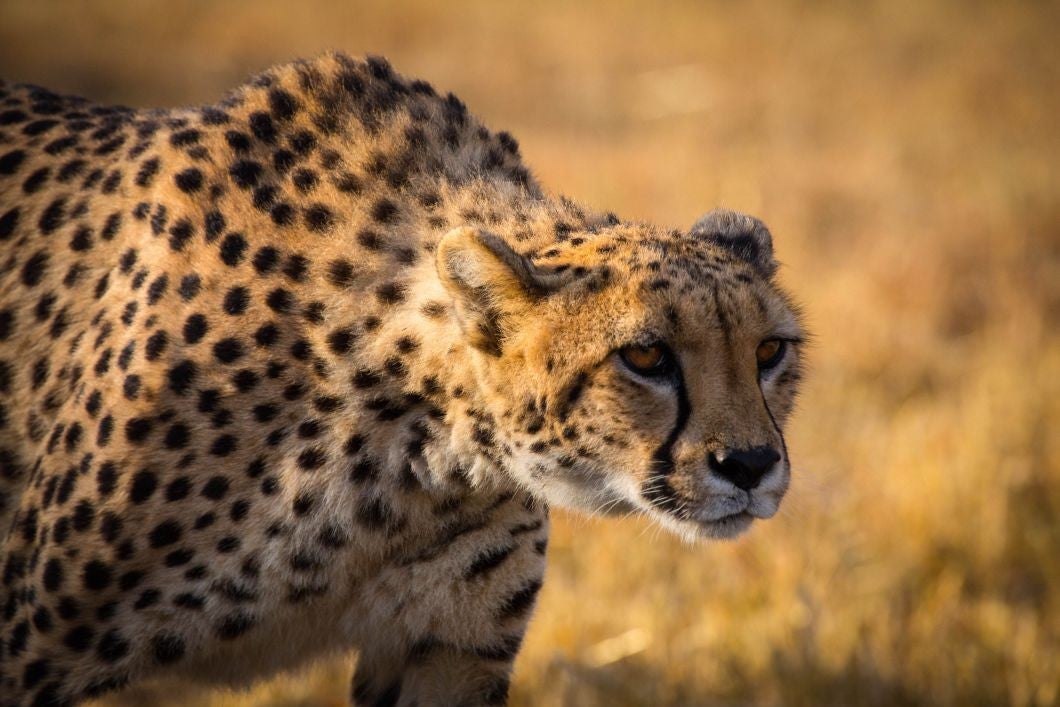David Attenborough explains the challenges of filming animals for The Hunt
A new BBC series explores the relationship between predator and prey. In his foreword to the accompanying book, the legendary broadcaster reveals the thrills of documenting the hunt

Filming a hunt out on the open savannahs of Africa is one of the trickiest jobs you are likely to get as a wildlife camera- person. As always, you will have to ensure that the animal you are following is unaware of your presence. But in this case you will have to conceal yourself from not just one but two – the hunted as well as the hunter. If either spots you during the stalk, you may have lost your chance.
You will have to think very carefully about exactly where to place yourself. It may be that you should not be behind the hunter but in front of it – and so far ahead of the prey that you will be close to the place where the catch will finally be made. To do that, you must know, or be able to judge, the nature of the ground over which the drama will be played out. A bend in a river may act as a barrier that the hunter will exploit; a patch of marshy ground may slow down a fleeting animal; or a slight rise, if you can get there unnoticed, may give you and your camera a crucially better view of the drama that otherwise may be out of sight.
Sixty years ago, when natural-history television was in its infancy, it was rumoured that one of the most successful makers of African wildlife programmes had offered £500 – an almost unbelievable sum in those days – to any camera-person who could get a clear shot of a lion pouncing on a wildebeest. For many years, there were no takers.

These days, of course, we are better at it. We have much more sophisticated and versatile equipment to help us – powerful long-focus lenses that can give us close-ups from afar; camera mounts that will smooth out shakes and judders so that you can even get acceptable pictures from the back of a 4x4 as it buckets and crashes through the bush; highly sensitive cameras that can see better than your own eyes on moonlit nights, when so many chases, in fact, take place; and electronic mechanisms that enable you to slow down movements 400 times, so that every detail and nuance of the action can be seen clearly and understood.
Today, too, you may have local experts to guide you and scientists who have been studying the behaviour of particular species for decades. If the project is important enough, then you may even have other camerapeople working alongside you to cover different aspects of the dramas that may eventually unfold.
And it is worth all this trouble, for the duels between hunters and hunted are as dramatic as any event in the natural world. These are the moments when an animal’s skills are fully stretched – when the issue is life or death.
Duels between hunters and hunted are not, of course, restricted to the open plains of Africa. They are fought out in every ecosystem on the planet and on every scale. Polar bears and harpy eagles are solitary hunters, whereas wild dogs and killer whales operate in teams. Spiders construct elaborate traps of silken filaments, while Sargassum fish disguise themselves with such perfection that they become, in effect, invisible. Indeed, every conceivable skill and accomplishment in the animal kingdom is deployed by some animal somewhere, either to catch – or to escape.
You might think that if the sequences documenting these hunts are to be complete, they should end in a kill. Were they all to do so, however, they would grossly misrepresent nature, for the fact is that the great majority of hunts do not end in death.
The subject of The Hunt is not therefore killing. It is the relationships between predators and prey. These duels have, in fact, resulted in the evolution of some of the most refined and sophisticated physical abilities, sensory systems and behavioural tactics to be found in the natural world.
‘The Hunt’ by Alastair Fothergill and Huw Cordey, with a foreword by Sir David Attenborough, is published by BBC Books (price £25). The television series starts on BBC1 at 9pm tomorrow
Join our commenting forum
Join thought-provoking conversations, follow other Independent readers and see their replies
Comments